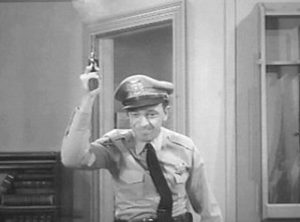
Note 11/1/2017: while this is an older article on SEO, the basic facts are still very much valid.
The NY Times published an article on February 13th (the 12th online) titled The Dirty Little Secrets of Search by David Segal, that lambasted J.C. Penny for a massive paid link campaign. This included playing elementary school tattle-tale and reporting their “findings” to Google – which in turn got J.C. Penny’s search engine rankings flushed down the toilet.
To me, and probably a lot of other SEO experts, the article is a joke. The condescending tone alone was enough to make me almost not read it.
There are flaws in their “investigation“. I don’t think all the “expert” SEO opinions in the article are accurate… more on that at the end of this post.
Evidently Segal was irate that J.C. Penny was ranking so high for so many items they sold, and brought in an expert to do some research on why. This expert found that J.C. Penny had been buying links to boost their SEO rankings. Something Google says is against their rules (and has since penalized everyone that does this).
The article refers to link buying as “Black Hat”. That’s a joke. If anything, it’s little off white or gray: nowhere, I repeat nowhere near black. People that actually know and use black hat techniques would laugh at the whole article.
Woops…
Segal should have done a little more homework on some of the sites he quotes in the first few paragraphs of his article. As he’s naming various things like dresses, bedding, sweater dresses, etc. and questioning if J.C. Penny is really the best web site in the world for that product, he links to sites HE thinks should rank better… the problem is, he links to at least one site that buys links! Yep! You got it. And he gave them a no-follow link from the N.Y. Times to boot… I’ll take one of those please! I spent maybe 5 minutes and found the rug site he links to has what appears to be paid links in link directories.
J.C. Penny denied they were buying links, but subsequently fired their SEO firm. The SEO firm should have used other methods to build links and kept the paid links at a minimum. I’m sure J.C. Penny was paying big dollars to this SEO firm and the firm was being lazy and obviously didn’t take the best care of their client.
Buying links is common… my guess is Segal or someone at NY Times had a beef with J.C. Penny, or, owns a company that J.C. Penny was out ranking.
Is Organic SERP Boosted by Massive PPC?
The Times article also questions if there’s a link between J.C. Penny’s massive paid advertising spend on Google and their seemingly unnatural high search rankings. I think there is a correlation, however, I also think it’s a subtle side effect not an intentional benefit rewarded by Google. Google is not God. Google is not infallible. Getting massive traffic from paid ads probably triggers an increase in organic rankings. I don’t believe that Google rewards big advertisers by giving them a big jolt of organic ranking caffeine. But if they do, it’s their business. They say they don’t, so I believe them. If they do, then they shouldn’t say they don’t and that’s the extent of it.
My Take…
My take on this “investigation” is: Get a Life! Go investigate something important and let Google police their own company and rankings. It reminds me of Barney Fife blowing something way out of proportion and making a big deal over nothing – and locking up the whole town.
After all, J.C. Penny actually sells the products they ranked for – there was no trickery, you could actually get what you were looking for… and that’s the point of searching for something.
I don’t agree with all the SEO “expertise” that’s bantered around in this article – something I address in my SEO Brain Dump Course – there are a lot of experts who state this or that, but when I’ve tested these things, they don’t actually matter, or, even worse, will hurt your rankings… in this article I didn’t read anything that would hurt rankings, but I did read a few things that they claim to matter that do not.
Until next time,
Fred

 [addtoany]
[addtoany]